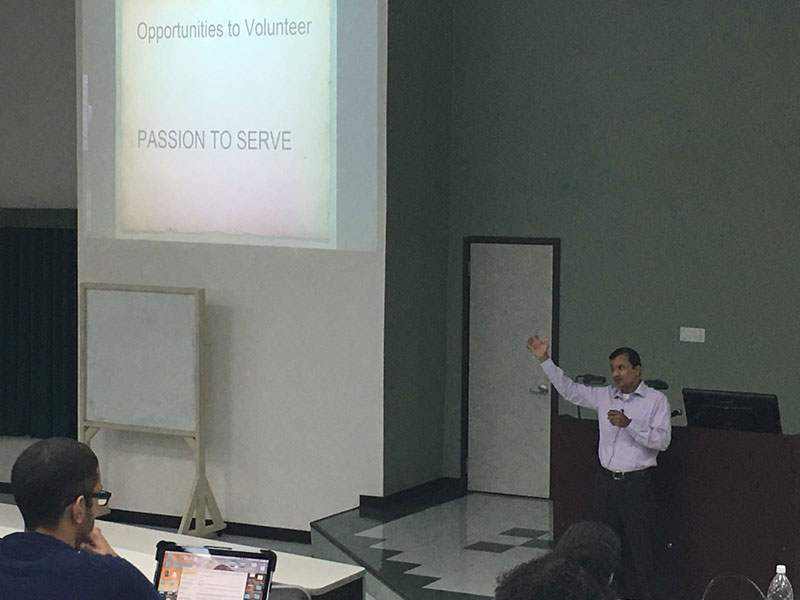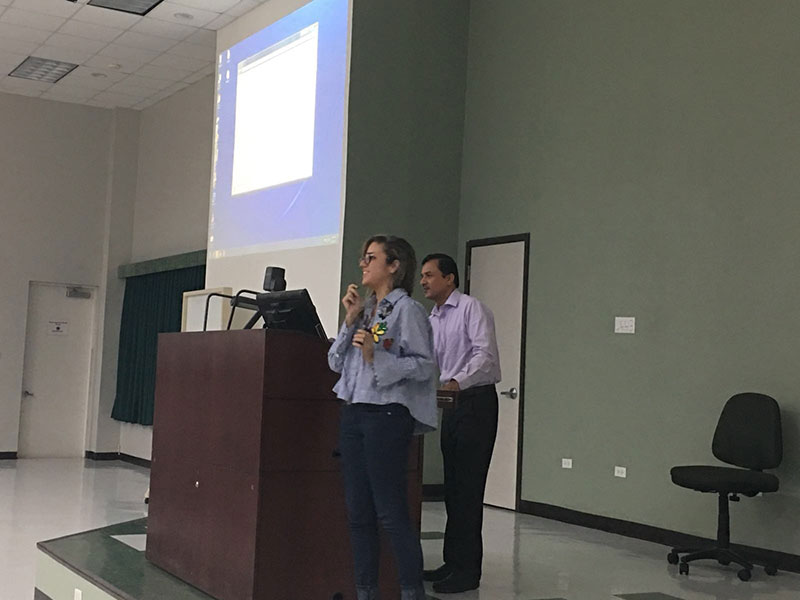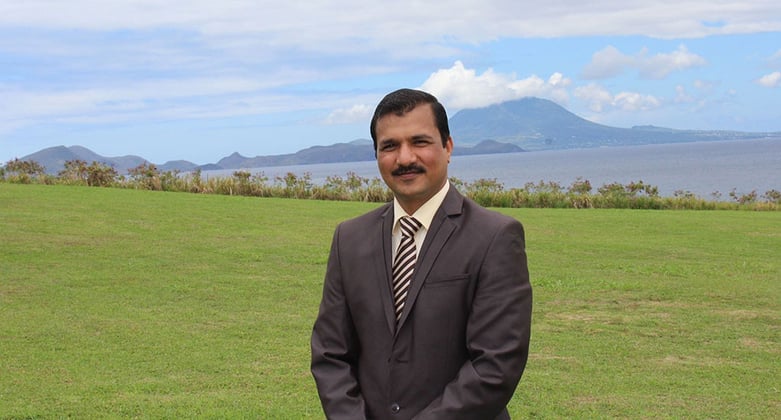UMHS faculty member Dr. Prakash Mungli, MD., M.B.B.S., UMHS Chair of Department of Molecular Sciences, Professor of Biochemistry, and Assistant Dean of Student Affairs, gave a speech in connection with the nonprofit group Med4You, “Worldwide Health and How Students Can Get Involved,” on November 16, 2017 at the auditorium on campus.
The UMHS Endeavour recently spoke to Dr. Mungli about the speech and ways UMHS students can get involved with worldwide health. We spoke to Dr. Mungli as he prepared to return to his native India for a Health Camp, something he has done each December since 2015. Dr. Mungli gave many details about the differences between health care in the USA and India.
UMHS Endeavour: What are some of the topics you discussed in the speech about worldwide health and how students can get involved?
Dr. Prakash Mungli: I spoke about the health-care system in developing countries, particularly India. I spoke about the health resources distribution and the disparity between rural and urban healthcare in India. I also spoke about the opportunities to volunteer as a healthcare provider in India, especially in rural India. I have also explained how they can get involved in this type of volunteering, especially in the Non Governmental Organization called Navodaya Charitable society (NCS) which my doctor friends and I created in India in 2017. This organization is meant for disadvantaged people by providing health care to them at minimal cost to no cost. We welcome UMHS students to be part of this organization, whenever and in whatever the capacity that is possible to them.
What are two specific things med students should know about worldwide health in 2017?
I would say students should be aware of health-care systems in underdeveloped and developing countries and compare that to their own. This helps them to understand the healthcare needs of people in other countries where they are planning to visit as a volunteer. I also would advise them to know the causes and treatment for common disorders that are prevalent in the countries that they visit.

A LOOK AT HEALTH CARE IN INDIA: Dr. Prakash Mungli discusses differences between health care in India & USA during speech on November 16, 2017 on UMHS campus. Photo: Med4You
What is different about the health-care system in India compared to the USA?
To be honest, I have not done much work in India, I need to do more and give back to my people. I do conduct a Health Camp in my village every year when I visit India, generally during the month of December. I’ve been doing it since 2015. Prior to that, I did a practice in my village as a family physician for two years. In a way, I know most of my villagers and their health needs. I need to do more for my villagers. The health-care system in India is quite different than in the USA, though as per the Indian Constitution, every Indian citizen has a right to health care. It is the duty of the government to provide health-care facilities to its citizens free of cost. This is done through government hospitals but 70% of Indians pay out of pocket for their health care to private practitioners. The reason for this is poor health-care facilities provided by the government. This has caused a great disparity between rural and urban health care in India. Due to variety of reasons, there is a great divide between rural and urban health care. This is despite the fact that India is a destination for medical tourism for people across the globe, largely because of the cheaper and better quality health care provided by the private hospitals. This has not changed the face of health care in rural India much. There is a large gap that needs to be addressed.

MED4YOU FOUNDER: Ariana Hernandez of Med4You speaks to UMHS students on November 16, 2017 during Dr. Mungli's presentation. Photo: Med4You
Is there anything else med students should know about worldwide health?
It is always good to know what is going on around the globe, especially related to health issues. This helps keep us up to date on the emerging disorders,especially if they are communicable.
Dr. Mungli has received the Most Inspiring Professor Award from UMHS students for three times from outgoing students and has twice won the “Best Dressed Professor Award.” In addition, Dr. Mungli is an accomplished author and has published several papers in medical journals. He also has an informative Facebook page and group, Biochemistry Made Easy, and his own YouTube channel. Watch for an upcoming feature in the Endeavour about Dr. Mungli’s lifestyle medicine videos on YouTube.
About UMHS:
Built in the tradition of the best U.S. universities, the University of Medicine and Health Sciences focuses on individualized student attention, small class sizes and recruiting high-quality faculty. For these reasons, UMHS is quickly becoming the school of choice among Caribbean medical schools.

Scott is Director of Digital Content & Alumni Communications Liaison at UMHS and editor of the UMHS Endeavour blog. When he's not writing about UMHS students, faculty, events, public health, alumni and UMHS research, he writes and edits Broadway theater reviews for a website he publishes in New York City, StageZine.com.
















